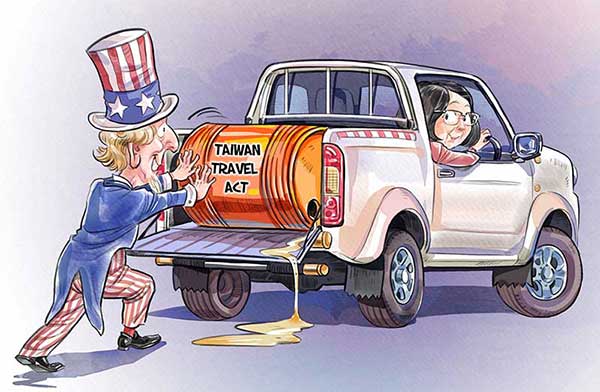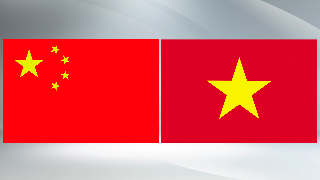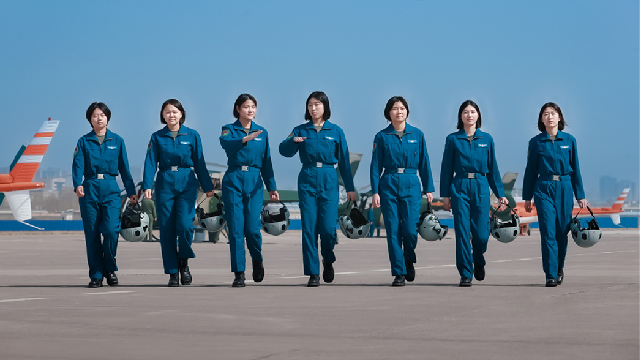
Not a single inch of Chinese territory can be separated from China, and any attempt to divide the nation would be crushed, President Xi Jinping said at the closing of the first session of the 13th National People’s Congress on Tuesday.
We should continue to stick to the one-China principle and the 1992 Consensus, promote the peaceful development of cross-Straits relations, and expand the economic and cultural exchanges between the two sides so that both sides can avail of the opportunities created by the Chinese mainland’s economic development, improve their well-being and advance the “peaceful reunification of the motherland”, Xi said.
The message is clear: the mainland seeks peaceful and prosperous cross-Straits ties but only under the one-China principle, and it will not tolerate any secessionist moves.
However, ignoring Beijing’s resolve and warning, US President Donald Trump signed the so-called Taiwan Travel Act on March 16, which encourages Washington to send officials “of all levels” to meet their “counterparts” in Taiwan, and vice versa.
The US act is a serious violation of the one-China principle and the three China-US joint communiqués, which form the basic political foundation for China-US ties. Washington’s provocative act will not only worsen China-US relations further but also create many uncertainties across the Straits. In fact, by tacitly encouraging “Taiwan independence”, the US has dealt a very serious blow to Beijing-Washington ties.
Since the Beijing-Washington relationship is one of the most important in the world today, any change in it may affect the situation not only in the Asia-Pacific region but also in the rest of the world. The Trump administration, by not respecting China’s sovereignty and territorial integrity, has taken a dangerous path which could greatly damage the strategic and political trust between the two sides.
Trump’s endorsement of the “Taiwan Travel Act” follows his attempts to take new trade measures against China, and either of his actions could become a major turning point in China-US relations.
That Taiwan is the primary determinant of national unity and of core national interest can never be overemphasized. The Trump administration is sure to find, sooner rather than later, that using the island as a political bargaining chip to settle trade disputes is a great mistake. China has zero-tolerance for any attempt to undermine its sovereignty and territorial integrity.
Furthermore, if the “Taiwan Travel Act” prompts the Taiwan leader to visit the US in the future, bilateral ties would suffer a great setback. That Beijing-Washington ties went into deep freeze when former island leader Lee Teng-hui “officially visited” the US in 1995 is an apt example of what the US act could lead to.
The US move has also sent the wrong signals to “secessionists” in Taiwan, who could cause political turmoil by calling for “Taiwan independence”. This will not only damage the roots of Beijing-Washington ties but also raise a geopolitical storm in the Asia-Pacific, as Beijing has not ruled out taking military action to reunify the island with the motherland once the island authorities crosses the redline.
The Tsai Ing-wen administration on the island wants greater say in the international community, and the Trump administration is fishing in troubled waters by passing an act that is designed to grant the island an even bigger say.
However, China will crush any efforts to separate any part of the country, and any secessionist attempt by Tsai with the US support is doomed to failure. The Trump administration should appreciate the importance of the one-China principle in China-US relations, and not neutralize the progress the two sides have made in the last few decades. And Taiwan, as Xi said on Tuesday, will face the “punishment of history” for any attempt at separatism.
Therefore, the only choice for the US is to push the act aside, in practice.
The author is a professor at the Institute of Taiwan Studies, Beijing Union University.









